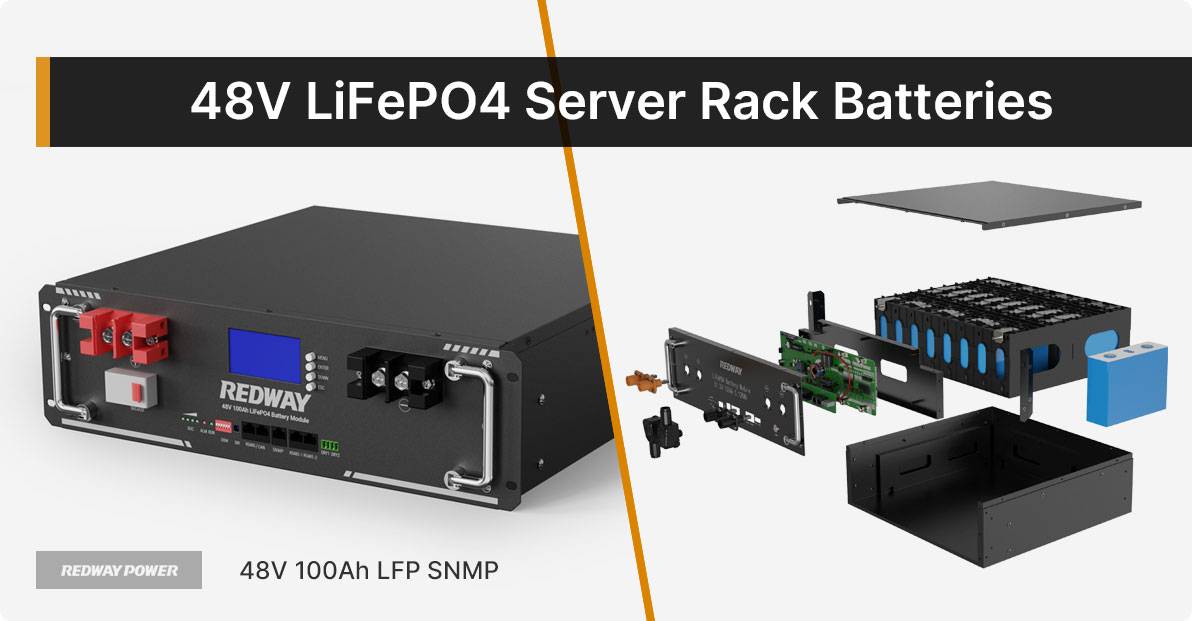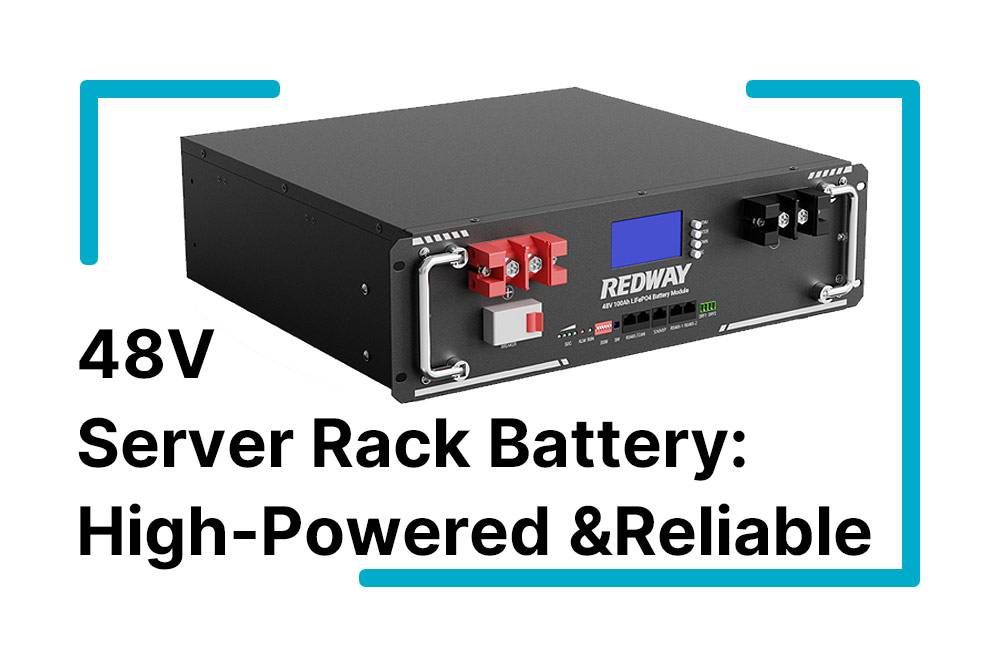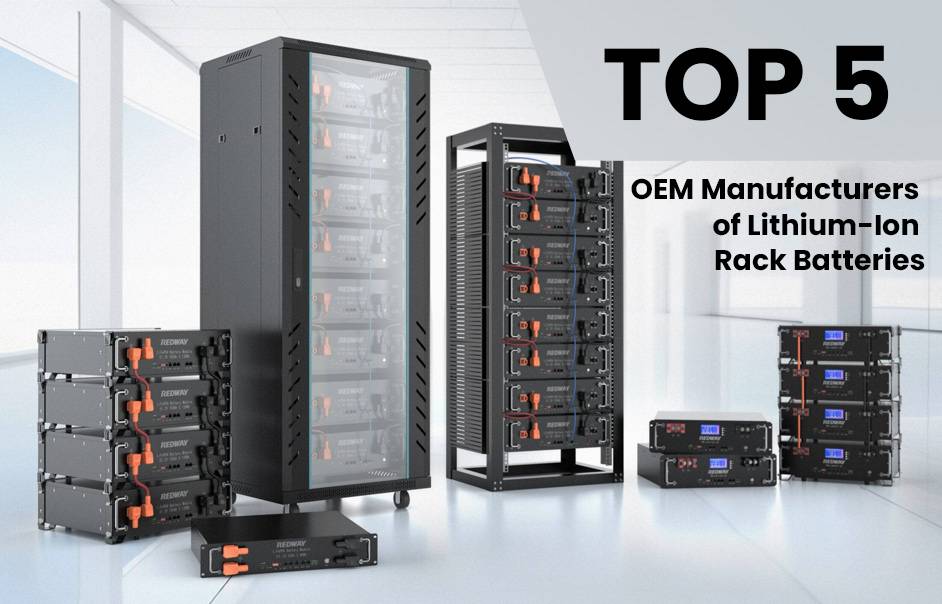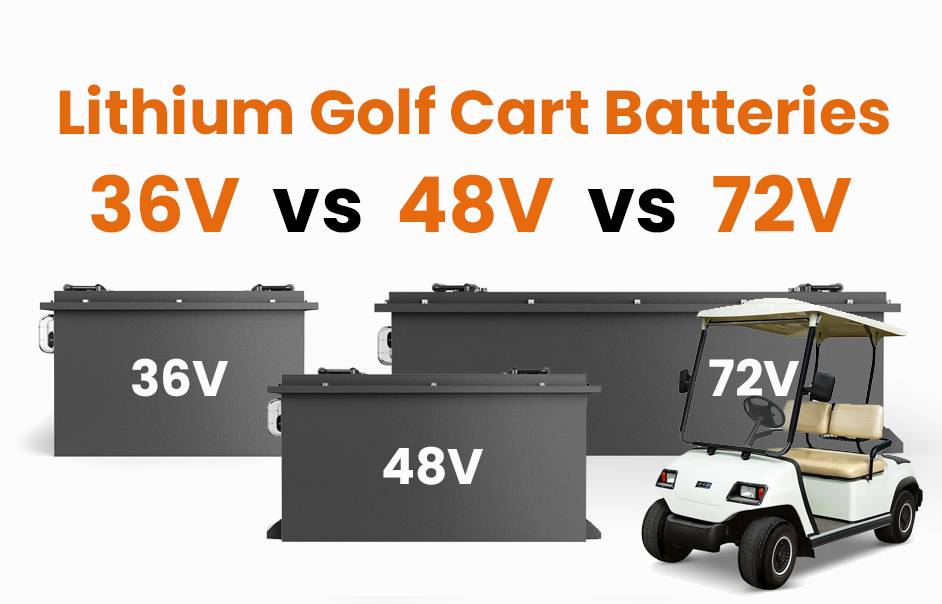The 48v LifePO4 server rack battery is a high-capacity battery that provides reliable power to servers and other critical equipment. This type of battery is ideal for use in data centers and other environments where uptime is crucial. With its long lifespan, high efficiency, and low maintenance requirements, the 48v LifePO4 server rack battery is a popular choice for businesses that need to keep their servers running smoothly.
One of the key advantages of the 48v LifePO4 server rack battery is its high energy density. This means that it can store a large amount of energy in a relatively small space, making it an ideal choice for data center environments where space is at a premium. Additionally, the LifePO4 chemistry used in these batteries is known for its high efficiency and long cycle life, which means that they can provide reliable power for many years without needing to be replaced.
Another advantage of the 48v LifePO4 server rack battery is its low maintenance requirements. Unlike other types of batteries, which may require regular maintenance to ensure optimal performance, the LifePO4 chemistry used in these batteries is very stable and does not require much attention. This makes them an ideal choice for businesses that need reliable power without the hassle of frequent maintenance.
Overview of 48V LiFePO4 Server Rack Batteries
48V LiFePO4 Server Rack Batteries are a type of advanced lithium iron phosphate (LiFePO4) battery designed to power large server racks and other advanced computing systems. These batteries are significantly more efficient, reliable, and long-lasting than traditional lead-acid or other types of batteries.
LiFePO4 batteries are known for their high energy density, long cycle life, and low self-discharge rates. They are also considered safer than other types of batteries due to their stable chemical properties and resistance to thermal runaway.
LiFePO4 batteries are becoming increasingly popular in the data center industry due to their ability to deliver high power output, fast charging times, and low maintenance requirements. They are also more environmentally friendly than other types of batteries and can be recycled at the end of their useful life.
Some of the key benefits of 48V LiFePO4 Server Rack Batteries include:
- High energy density: LiFePO4 batteries offer a high energy density, which means they can store more energy in a smaller space. This is particularly important in data centers where space is at a premium.
- Long cycle life: LiFePO4 batteries can last for thousands of cycles, which means they can be used for many years without needing to be replaced. This makes them a cost-effective solution for data center operators.
- Fast charging times: LiFePO4 batteries can be charged quickly, which means they can be used to provide backup power during power outages or other emergencies.
- Low maintenance requirements: LiFePO4 batteries require very little maintenance, which means they can be left unattended for long periods of time without needing to be checked or serviced.
Overall, 48V LiFePO4 Server Rack Batteries are a reliable and efficient solution for data center operators who need to provide backup power to their critical systems. With their long cycle life, high energy density, and low maintenance requirements, they are an excellent choice for organizations that need to ensure the availability of their IT infrastructure.

Benefits of Using LiFePO4 Technology
LiFePO4 technology offers several benefits over other battery technologies. Here are some of the key benefits of using LiFePO4 technology in server rack batteries:
High Energy Density
LiFePO4 batteries have a higher energy density than traditional lead-acid batteries. This means that they can store more energy in a smaller space. This makes them an ideal choice for server rack applications where space is at a premium.
Long Cycle Life
LiFePO4 batteries have a longer cycle life than other battery chemistries. They can typically be cycled more than 2000 times before they need to be replaced. This makes them a cost-effective solution for server rack applications where batteries may need to be cycled frequently.
Safety and Stability
LiFePO4 batteries are a safe and stable choice for server rack applications. They are less prone to thermal runaway than other battery chemistries, which means they are less likely to catch fire or explode. They also have a lower risk of leakage or corrosion, which can damage other components in the server rack.
In summary, LiFePO4 technology offers several benefits over other battery technologies, including high energy density, long cycle life, and safety and stability. These benefits make LiFePO4 batteries an ideal choice for server rack applications where space is at a premium and reliability is critical.
Technical Specifications of 48V LiFePO4 Batteries
LiFePO4 batteries are popular for their high energy density, long cycle life, and low self-discharge rate. These batteries are ideal for server rack applications where a reliable and long-lasting power source is required. In this section, we will discuss the technical specifications of 48V LiFePO4 batteries.
Voltage and Capacity
LiFePO4 batteries are available in various voltage and capacity ratings. The most common voltage rating for server rack batteries is 48V. This voltage rating is compatible with most server rack systems and provides a stable power supply for critical applications.
The capacity of a LiFePO4 battery is measured in ampere-hours (Ah). A higher capacity battery can provide more power for a longer duration. The capacity of 48V LiFePO4 batteries ranges from 100Ah to 300Ah. The capacity of the battery should be chosen based on the power requirements of the server rack system.
Physical Dimensions
The physical dimensions of 48V LiFePO4 batteries vary based on their capacity. The most common form factor for server rack batteries is the 19-inch rack mount. These batteries are designed to fit into standard server racks and can be easily integrated into existing systems.
The height of the battery can vary from 2U to 8U depending on the capacity. The depth of the battery can range from 500mm to 800mm. The width of the battery is typically 19 inches to fit into standard server racks.
Electrical Characteristics
LiFePO4 batteries have several electrical characteristics that make them ideal for server rack applications. These batteries have a high energy density that allows them to store more energy in a smaller space. They also have a low self-discharge rate, which means they can retain their charge for a longer duration.
LiFePO4 batteries have a nominal voltage of 3.2V per cell. A 48V battery typically consists of 16 cells connected in series. These batteries have a high discharge rate, which means they can deliver a large amount of power quickly.
In summary, 48V LiFePO4 batteries are an ideal choice for server rack applications. These batteries have a high energy density, long cycle life, and low self-discharge rate. The technical specifications of these batteries should be carefully considered based on the power requirements of the server rack system.
Installation and Integration
Rack Compatibility
Before installing a 48V LiFePO4 server rack battery, it is important to ensure that the battery is compatible with the server rack enclosure. The SK48V100, for example, is designed to be easily installed into standard 19″ EIA server-rack type battery enclosures or the custom-built SOK Server Rack. It is important to check the dimensions and weight of the battery to ensure it fits within the rack and is not too heavy for the rack to support.
Electrical Connections
Proper electrical connections are critical to the safe and reliable operation of a 48V LiFePO4 server rack battery. The battery must be connected to the server rack’s power distribution unit (PDU) using appropriate cables and connectors. It is important to follow the manufacturer’s instructions for making these connections and to ensure that the cables and connectors are rated for the appropriate voltage and current.
Thermal Management
Thermal management is also an important consideration when installing a 48V LiFePO4 server rack battery. These batteries generate heat during operation, and if not properly managed, this heat can damage the battery or other components in the server rack. It is important to ensure that the server rack’s cooling system is capable of dissipating the heat generated by the battery. This may require additional cooling fans or other thermal management solutions.
In summary, when installing a 48V LiFePO4 server rack battery, it is important to ensure that the battery is compatible with the server rack enclosure, that proper electrical connections are made, and that appropriate thermal management measures are taken. By following these guidelines, users can ensure safe and reliable operation of their server rack battery.
Operational Guidelines
Charging Protocols
LiFePO4 batteries have specific charging protocols that should be followed to ensure optimal performance and longevity. When charging the 48V server rack battery, it is recommended to use a charger specifically designed for LiFePO4 batteries. The charger should have a maximum voltage of 58.4V and a maximum current of 100A. It is important to avoid overcharging the battery as it can cause permanent damage.
To prevent overcharging, the charger should be set to the correct voltage and current levels recommended by the manufacturer. It is also recommended to use a charger with a built-in charging algorithm that can monitor the battery’s state of charge and adjust the charging current accordingly.
Discharge Rates
LiFePO4 batteries have a high discharge rate and can deliver a high amount of power in a short period of time. However, it is important to avoid discharging the battery below its recommended depth of discharge (DOD) to prevent damage to the battery.
The recommended DOD for the 48V server rack battery is 80%. This means that the battery should not be discharged below 20% of its total capacity. Discharging the battery below this level can cause irreversible damage to the battery and reduce its lifespan.
Maintenance Procedures
To ensure optimal performance and longevity, the 48V server rack battery should be properly maintained. Regular maintenance procedures include checking the battery’s state of charge, monitoring the temperature, and inspecting the battery for any signs of damage or wear.
It is recommended to check the battery’s state of charge regularly and recharge it when it reaches 20% capacity. The battery’s temperature should also be monitored to prevent overheating, which can cause permanent damage to the battery.
Inspecting the battery for any signs of damage or wear is also important. Any damage or wear should be addressed immediately to prevent further damage to the battery. It is recommended to follow the manufacturer’s maintenance procedures to ensure the battery’s optimal performance and longevity.
By following the recommended charging protocols, discharge rates, and maintenance procedures, the 48V LiFePO4 server rack battery can provide reliable and long-lasting power for server applications.
Applications of 48V LiFePO4 Server Rack Batteries
LiFePO4 server rack batteries are becoming increasingly popular due to their high energy density, long cycle life, and low maintenance requirements. These batteries are used in a wide range of applications, including data centers, telecommunications, and renewable energy systems.
Data Centers
Data centers require reliable backup power to ensure that their critical systems remain operational during power outages. LiFePO4 server rack batteries are an ideal choice for data centers because of their high energy density and long cycle life. These batteries can provide backup power for several hours, allowing data center operators to safely shut down their systems or switch to alternative power sources. Additionally, LiFePO4 batteries require minimal maintenance, reducing the total cost of ownership for data center operators.
Telecommunications
Telecommunications companies rely on backup power to ensure that their networks remain operational during power outages. LiFePO4 server rack batteries are an excellent choice for these applications because of their high energy density and long cycle life. These batteries can provide backup power for several hours, ensuring that telecommunications networks remain operational during power outages. Additionally, LiFePO4 batteries are lightweight and compact, making them easy to install in telecommunications equipment.
Renewable Energy Systems
Renewable energy systems, such as solar and wind power, require reliable energy storage solutions to ensure that energy is available when it is needed. LiFePO4 server rack batteries are an ideal choice for these applications because of their high energy density and long cycle life. These batteries can store energy generated by renewable energy systems during periods of low demand and release it during periods of high demand. Additionally, LiFePO4 batteries are environmentally friendly and do not contain toxic materials, making them an ideal choice for renewable energy systems.
In conclusion, LiFePO4 server rack batteries are versatile and reliable energy storage solutions that are suitable for a wide range of applications. These batteries offer high energy density, long cycle life, and low maintenance requirements, making them an ideal choice for data centers, telecommunications, and renewable energy systems.
Regulatory Compliance and Certifications
When choosing a 48V LiFePO4 server rack battery, it is important to consider regulatory compliance and certifications. These ensure that the battery system meets industry standards and is safe to use.
One important certification to look for is UL 1973, which covers batteries and battery systems for use in stationary applications. This certification ensures that the battery has been tested and meets safety requirements for use in a server rack.
Another important certification is UL 9540A, which covers energy storage systems and equipment. This certification ensures that the battery system has been tested and meets safety requirements for use in energy storage applications.
In addition to certifications, it is important to consider safety features of the battery system. For example, some LiFePO4 batteries have built-in battery management systems (BMS) that monitor the battery’s state of charge and protect against overcharging, overdischarging, and short circuits.
Overall, it is important to choose a 48V LiFePO4 server rack battery that has been certified and meets safety requirements. This ensures that the battery system is reliable and safe to use in a server rack application.
Environmental Impact and Sustainability
LiFePo4 battery packs are known for their minimal environmental impact and sustainable approach. Unlike conventional batteries that rely on scarce materials, LiFePo4 battery packs utilize abundant and easily accessible elements such as iron and phosphate. This not only ensures a steady supply chain but also minimizes the ecological impact of resource exploitation. Additionally, LiFePo4 batteries are non-toxic and non-hazardous, making them an environmentally-friendly choice.
In an era characterized by environmental consciousness and energy efficiency, server rack batteries play a pivotal role in meeting these demands. There is a growing emphasis on developing batteries with lower environmental impact, including reduced use of rare or hazardous materials. LiFePo4 batteries are a step in the right direction as they are known for their responsible use of resources and minimal environmental impact.
LiFePo4 battery packs have a long lifespan and require less maintenance compared to other types of batteries. This reduces the need for frequent replacements and disposal, further minimizing their environmental impact. Additionally, LiFePo4 batteries are highly efficient, reducing the amount of energy needed to power devices and systems. This translates to lower energy consumption and reduced carbon footprint.
In conclusion, LiFePo4 server rack batteries are an environmentally-friendly and sustainable choice for organizations looking to reduce their carbon footprint and minimize their impact on the environment.
Market Trends and Future Outlook
LiFePO4 server rack batteries have been gaining popularity in recent years due to their high energy density, fast charging capability, and enhanced safety features. As a result, the market for these batteries is expected to grow significantly in the coming years. According to a report by MarketsandMarkets, the global LiFePO4 battery market is projected to reach $22.5 billion by 2027, growing at a CAGR of 18.4% from 2020 to 2027.
One of the key drivers of this growth is the increasing demand for energy storage solutions in data centers, which require reliable and efficient power backup systems to ensure uninterrupted operations. LiFePO4 server rack batteries are well-suited for this application due to their high capacity, scalability, and long cycle life. In addition, these batteries are also being used in other applications such as electric vehicles, renewable energy systems, and consumer electronics.
Another trend in the LiFePO4 server rack battery market is the focus on improving the efficiency and lifespan of these batteries. Manufacturers are developing advanced features and technologies such as active cell balancing, thermal management, and predictive maintenance to optimize battery performance and reduce downtime. In addition, there is also a growing interest in recycling and repurposing LiFePO4 batteries to reduce waste and support a circular economy.
Overall, the future outlook for the LiFePO4 server rack battery market is positive, with increasing demand and technological advancements driving growth. As more companies adopt these batteries for their energy storage needs, we can expect to see further innovation and improvements in this field.
Frequently Asked Questions
What are the top considerations when selecting a server rack battery for data centers?
When selecting a server rack battery for data centers, there are several key factors to consider. Capacity and runtime are important considerations, as they determine how long the battery can provide backup power. Other important factors include the battery’s voltage, cycle life, and safety features. Additionally, it is important to consider the compatibility of the battery with the server rack and any other components in the data center.
How does the performance of LiFePO4 batteries compare to traditional lead-acid in server rack applications?
LiFePO4 batteries offer several advantages over traditional lead-acid batteries in server rack applications. LiFePO4 batteries have a longer lifespan, higher energy density, and faster charging times. They are also more environmentally friendly and have a lower risk of thermal runaway. Overall, LiFePO4 batteries are a more reliable and cost-effective option for server rack applications.
What are the expected lifespan and cycle count for high-quality 48V server rack batteries?
High-quality 48V server rack batteries typically have a lifespan of 10-15 years, with a cycle count of 2000-5000 cycles. However, the lifespan and cycle count can vary depending on factors such as temperature, depth of discharge, and charging/discharging rates. Proper maintenance and monitoring can help extend the lifespan and cycle count of the battery.
Can you explain the maintenance requirements for LiFePO4 server rack batteries?
LiFePO4 server rack batteries require minimal maintenance compared to traditional lead-acid batteries. However, it is important to monitor the battery’s state of charge, voltage, and temperature regularly. The battery should also be kept clean and free from debris, and any damaged or worn components should be replaced promptly. It is also important to follow the manufacturer’s recommended charging and discharging procedures to ensure optimal performance and lifespan.
What safety features should be looked for in a 48V LiFePO4 server rack battery?
Safety features are an important consideration when selecting a 48V LiFePO4 server rack battery. Overcharge and over-discharge protection, as well as short-circuit protection, are essential safety features that should be present in any LiFePO4 battery. Additionally, some LiFePO4 batteries may include thermal runaway protection, which helps prevent the battery from overheating and catching fire.
How do environmental factors affect the efficiency and durability of server rack batteries?
Environmental factors such as temperature, humidity, and vibration can affect the efficiency and durability of server rack batteries. High temperatures can reduce the battery’s lifespan and cycle count, while low temperatures can reduce the battery’s capacity and increase its internal resistance. Humidity and vibration can also cause damage to the battery’s internal components over time. It is important to consider these factors when selecting a server rack battery and to provide proper ventilation and temperature control in the data center.



